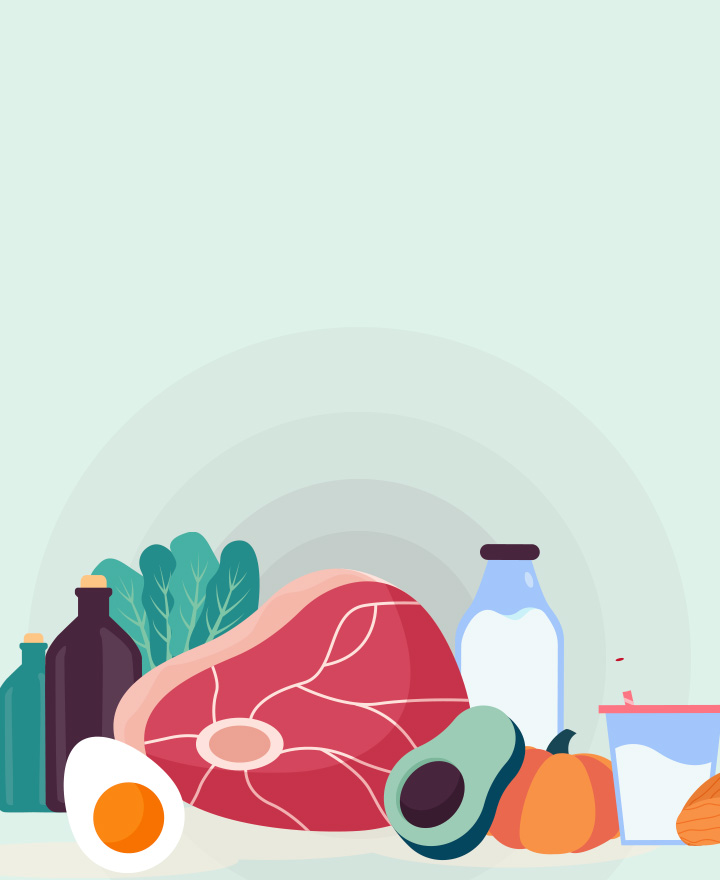

High-Sodium Foods to Avoid: Tips for Reducing Salt in Your Diet
Sodium is a mineral naturally found in several foods we consume. Our regular table salt is also a naturally occurring ingredient widely used in cooking and seasoning. Too much sodium can harm our body, leading to hypertension and strokes. Therefore, to stay healthy, you must avoid foods high in sodium. Read on to know about foods high in sodium to avoid.
Say ‘No’ to These High-Sodium Foods
To stay fit and healthy, you must avoid excess sodium in your diet. Here are some of the foods high in sodium to avoid:
• Processed Meats
Processed meats like bacon, hot dogs, and deli meats are significantly high in sodium. One standard-sized hot dog could contain 700 mg of sodium, while a regular ham deli could have nearly 250 mg of sodium.
• Canned Soups
Packaged and canned soups are loaded with sodium. However, the quantity of sodium in packaged soup depends on the soup type and the brand it belongs to. The average amount of sodium per can of soup is around 410 milligrams. But there are soup brands that far exceed this average amount.
• Sauces
Sauces, ketchup, and condiments may contain high amounts of sodium. A single tablespoon of soy sauce may contain up to 1000 mg of sodium, while a single tablespoon of BBQ sauce may contain 450 mg of sodium on average.
• Frozen Foods
These are also foods high in sodium to avoid. They may aptly be called mini sodium bombs. One single serving of lasagna may have nearly 900 mg of sodium, while a single pizza slice may contain 700 mg of sodium.
• Packaged Vegetable Juices
If you think you are doing a favour to your body by consuming packaged vegetable juices, you are wrong. These juices are high in sodium and can do more harm to you than good. Approximately 240 ml of packaged vegetable juice may contain as much as 405 mg of sodium.
• Cottage Cheese
Cottage cheese is a high-sodium food to avoid. Regardless of the brand, the average sodium content of half a cup of cottage cheese is 300-400 mg.
• Instant Pudding Mixes
Will you ever believe that your delicious, sweet, and creamy pudding could contain sodium? But it does. Additives containing sodium used in instant pudding mixes can make your puddings stealthily salty. Approximately 25 grams of instant vanilla pudding mix may contain 350 mg of sodium.
FAQs
1. What is the recommended maximum amount of sodium intake per day?
The maximum recommended amount is 2300 mg per day.
2. What foods can balance your intake of excess sodium?
Foods high in potassium, like bananas, oranges, avocado, and potatoes, can balance the excess sodium in your body by flushing it out.
3. How to avoid excess salt in food?
You can avoid excess salt in food by following these tips:
• Do not add salt to your rice while boiling.
• Skip adding salt to the dough for homemade flatbreads, pizzas, etc.
• Consume only unsalted salads.
• Avoid processed and packaged foods.
• Stop using baking powder and soda frequently in your diet.
Conclusion
Avoiding high-sodium foods can prevent hypertension and improve your heart health. Instead of packaged, processed foods, you must include fresh vegetables and fruits in your daily diet. Cutting down on sodium intake and eating a balanced, wholesome diet is the key to improved health and vitality.
One of the important components of our overall wellness is also being financially secured. Healthcare emergencies can happen any time, but a good health insurance policy can protect you from such uncertain situations. To know more about Wellness and other health related tips, visit the wellness corner.
Sources: webmd.com, eatrightindia.gov.in
Disclaimer: This blog provides general information and discussions about health and related subjects. The information and other content provided in this blog, website or any linked materials are not intended and should not be considered or used as a substitute for medical advice, diagnosis, or treatment. Kindly contact your doctor before starting a new medicine or health regime.
Related Articles
Pre-pregnancy Diet: Foods To Avoid
Foods that help lower your cholesterol
Published on January 31, 2025


 Health Insurance
Health Insurance  Travel Insurance
Travel Insurance  Car Insurance
Car Insurance  Cyber Insurance
Cyber Insurance  Critical Illness Insurance
Critical Illness Insurance
 Pet Insurance
Pet Insurance
 Bike/Two Wheeler Insurance
Bike/Two Wheeler Insurance  Home Insurance
Home Insurance  Third Party Vehicle Ins.
Third Party Vehicle Ins.  Tractor Insurance
Tractor Insurance  Goods Carrying Vehicle Ins.
Goods Carrying Vehicle Ins.  Passenger Carrying Vehicle Ins.
Passenger Carrying Vehicle Ins.  Compulsory Personal Accident Insurance
Compulsory Personal Accident Insurance  Travel Insurance
Travel Insurance  Rural
Rural